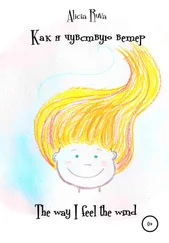There is a desolate place on the bank of a sluggish stream, where three ancient, ailing lemon trees silently grow without hope or reason, as though the sun has gone out. The dying trees are being slowly strangled by the lush growth all around. Not a sound. The light is tired and strange, beyond day or night. Even the river lapping at its bank is mute. The thick vegetation, tall enough to hide a man, from time to time exudes ripples of vague smell. The smell is rank, lusty, almost fetid.
Not a bird could there be here. Not a fish in the stream, not a beast in the thicket. Only distant crickets occasionally testing their strength and at once despairing. No movement, no breeze. And here is Emanuel Zaicek, his skin brown and scorched, the bear's skin wrapped round his shoulders, his white beard unkempt. He is kneeling on all fours, drinking or kissing the water. He is alone.
A new leaf: Pomeranz easily guessed the identity of the woman Fedoseyeva, was almost certain of that of Father Nicodeme, and was thus in a position to place the Cabinet minister beyond all suspicion. He also took an oath of loyalty to the State of Israel and gave his word of honor to restrict his activities to his own domain, so as not to encroach on that of others and so give rise to another false alarm. The authorities would agree in return to leave him in perfect peace, and guarantee his private status.
He left his apartment and his work, closed up his shop and sold the fittings. He spent some days touring the villages, following his map of the roads and settlements. In a few places he even worked some minor rustic wonders, like flexing a small muscle: tricks of legerdemain at a pound a time, seventy agorot for children. But he soon abandoned even these tours, because his heart pleaded for final rest.
So the time came for a new, almost idyllic reincarnation, a kind of virgin birth. Pomeranz had finally prepared himself for working on the land. He took his leave of Tiberias and settled in a kibbutz in Upper Galilee. As a man turns from side to side in his sleep. He accepted the job of shepherd, and agreed to repair watches whenever necessary. His mop of hair was turning gray, and the thick bushes above his small eyes were growing silvery. His face had become that of a saint in a rustic icon. Still the same powers of adaptation, as clinging as ivy.
Pomeranz settled down behind a wall of quietude. Day resembled day and night repeated night. There was a slow, deliberate routine, as if he intended to prove that he could bathe in the same river twice, or even once. All fuss he hated heartily. People, scenes, and ideas flowed past him, and he sat quietly, saying nothing.
Once they tried to make him participate, to co-opt him onto a small committee, the Garden Committee. But he, with his pensive smile, with his autumnal manners, asked them to leave him in peace. He already repaired their watches, and took the sheep out to pasture every day, he was meticulously regular with the milking and feeding and cleaning the stables; if they wanted him to he would willingly give some extra coaching in science to the slow learners. But he begged them not to press him. And he redoubled his silence.
If ever he recalled his wife, what he remembered was not the music of her voice but her hair, her fragrance, and her tears. And he would see as from a great distance the late afternoon light slowly fading in Jaroslaw Avenue, and the street lights coming on one by one, as if unwillingly marring the color of the night. He saw Stefa, slender, silhouetted against the parapet of the bridge, smoking with her back to him. He himself standing four paces behind her, smoking slowly. And just beneath their feet the river and the bridge, making no concession or allowance, ceaselessly flowing in two conflicting directions, and the two crossed streams were love.
In his large hands he remembered Audrey. At times the memory came as an obstinate stirring. He would concentrate, think music, cling to the music like a man clinging to a high balustrade, and after a while he would be able to laugh at himself. Other memories he could not vanquish so easily, could not vanquish at all, must give up the struggle. Float downstream. Close himself up and suffer in silence.
In his leisure hours Pomeranz would sit alone in his kibbutz room — wardrobe, bed, lampshade, table, cloth, and vase-setting himself and solving various algebraic equations and mathematical puzzles. Outside his window could be seen neat ranks of kibbutz flowers planted in the clefts of the rocks and assiduously tended. Further on, on the slopes of the hill, stood a few young, enthusiastic cypress trees, apparently in a perpetual state of ecstasy. Further still, beyond the wadi, he could see a gray mountainous landscape, boulders, olive trees, and wind. And over all midday silence or night breeze.
Among the members of the kibbutz his face, the face of an exiled Russian poet or Orthodox saint, caused a certain puzzlement, almost amounting to public perplexity, but his face had the power of preserving his privacy.
School children who had difficulty in learning would come to him two or three evenings a week. He had volunteered to give them some extra tuition in science. Occasionally there would be a sudden flash of illumination. One of the greasy-haired, nail-biting, acne-ridden louts would suddenly grasp Pythagoras's theorem, and his normally blank eyes would light up for a brief instant. Or one of the frivolous, flighty girls would inhale Pomeranz's smell with nervous, quivering nostrils and suddenly her eyes would be opened and she would see an integral. There was also a large, miserable dog, perhaps half-jackal, who shared Pomeranz's room. He had come to the kibbutz from nowhere, out of the night, an old, worn-out, thoroughly apathetic creature. Or he may have been melancholic.
Some people said:
'That Elisha, he's a real brain. We ought to bring him out of himself. He's a human being, he's one of our own members, and he's destroying himself in front of our very eyes."
Others said:
"Oh, really. Why don't you just let him be."
Or worse:
"No wonder, after everything he must have been through."
There were others who said:
"He belches at night. In Polish. Or perhaps he's talking. Talking in the night to that dog of his, which isn't even a dog really."
And finally they said:
"It's a case for the nurse. We're not living in the jungle."
Stretched out as usual on her carved divan from Turkestan or Bukhara, Comrade Fedoseyeva dictated various instructions concerning Palestine to her principal assistant, lying below her on the rug:
"We need to put out a few feelers in Palestine, Mikhail Andreitch, there you are again fast asleep like Plekhanov, something is going to happen any moment now in Palestine."
Mikhail Andreitch wriggled quickly on the camel-hair rug by the side of the low divan, raised his flat head toward Comrade Fedoseyeva, bared his teeth, sharpening yet further his habitual expression of perpetual thirst, and defended himself palely:
"What is Palestine, Comrade Fedoseyeva? Palestine is nothing. Nothing at all. A few small colonies. A few oranges. A few holy ruins. Foreign capital. Immigration. A bit of shooting once or twice a week. The whole thing on a Lilliputian scale. No bigger than your little finger. Palestine is nothing, Comrade Fedoseyeva."
Stefa:
"But they're always making new discoveries, formulae, inventions, a wonder cure for cancer they say they've found there only they're keeping it secret from the outside world so as to raise the price, and there have been some atomic rumors, secret weapons they're developing there by night, and as for you, Andreitch, you're just like the mujik who looked through the telescope and said, It's nothing, it's nothing. Your kind were no ordinary people, your kind were barons once, generals, governors of big towns, they used to go whish through the air with their whips in those days. Now concentrate, Andreitch dear, think hard, try to make amends and tell Mother sensibly and intelligently what they've got in Palestine."
Читать дальше

![Хироми Каваками - Strange Weather in Tokyo [= The Briefcase]](/books/29150/hiromi-kavakami-strange-weather-in-tokyo-the-br-thumb.webp)










